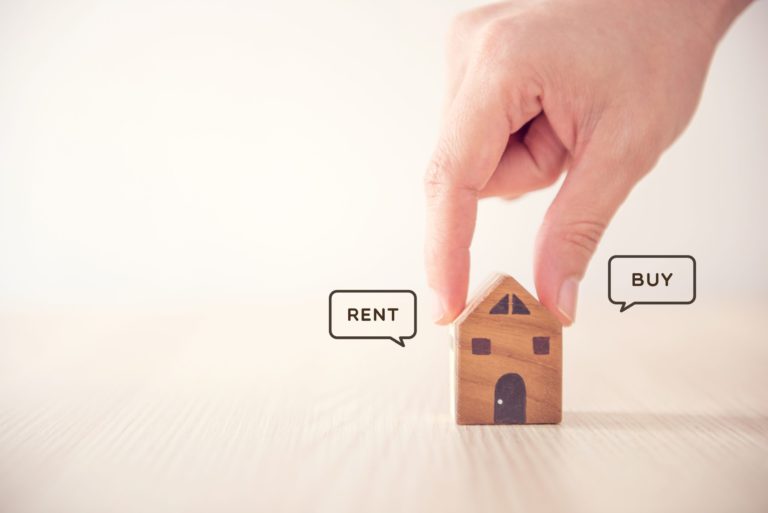When it comes to encouraging their children to buy a house, Indian parents must be the most vocal. In the present environment, however, it may not be a smart idea for millennials to invest in real estate. Before taking on a significant EMI for self-employment, one must evaluate a number of considerations. It is preferable to rent when you first begin working rather than being obligated to a big EMI.
Advantages of Buying
- It gives a sense of security and pride of home ownership.
- Rent is an expense that is incurred every month without creating any physical asset. Paying EMI, however, has dual benefits; it not only provides for a one month of shelter, but also increases the proportional ownership in the house.
- With renting you often have to relocate which entails a lot of wasted time, money and energy, but that is not the case with owning.
- Real-estate investment is a safe investment backed by a real asset which has potential of capital appreciation and tax benefits.
Disadvantages of Buying
1. Huge Responsibility
Owning a house comes with a lot of responsibilities and added expenses. You have to pay for maintenance, property tax, utilities, and much more out of your pocket.
2. Difficult to move out
Investing in a house means you will have to rethink before moving. If you get a dream job in another city, you cannot leave until you find a buyer or tenant.
3. High upfront costs
When purchasing a house, you are required to give a lump sum as a down payment. There are also other associated costs like registration charges and stamp duty.
Advantages of Renting
- Renting does not overburden one with EMI payments, house tax and other legal issues that are part and parcel of property ownership.
- Renting generally gives a feeling of lower liability. In metro cities you can rent a house worth Rs 50 lakh for only Rs 10,000-15,000 a month. At the same time, if you buy a home at the same cost, you have to shell out anywhere from Rs 30,000 – 40,000 as an EMI (equated monthly installment).
- One can rent closer to work or closer to good schools, but the same properties may or may not be affordable or within one’s budget.
Disadvantages of Renting
1. You have no control
When you rent a property, almost all the power belongs to its owner. They can periodically increase the rent and even make it unavailable for renting at any time. These uncertainties make renting a property a risky option.
2. You can never make it your own
You cannot make changes to the rented house in most cases. Some owners do not even let you hang a painting and modifying without their permission may result in the loss of the security deposit.
Difference between Renting and Buying
The most significant distinction between purchasing and renting a home is ownership. When you buy a house, you own it, however when you rent one, you don’t. However, this isn’t the only factor to consider. Here are three crucial elements to consider while making your selection.
1. Rent Ratio
It is the ratio of the property’s purchase price to the annual rent. It’s a good idea to acquire a house that’s worth 20 times the annual rent. If you pay a monthly rent of 25,000 for a house, you’ll end up paying 3 lakhs a year. If you reside in such house for 20 years, the total cost will be 60 lakhs. If the property’s price is less than 60 lakhs, the rent-to-purchase ratio favours buying rather than renting. However, if the property is worth more than 60 lakhs, renting it makes more sense.
2. EMI Value
If you take out a loan to buy a house, you must factor in the costs of repayment while assessing whether the house would be lucrative for you. A general guideline is that if the equated monthly payment (EMI) exceeds 30% of your monthly income, you should not buy the property, and vice versa.
3. Rental Yield
It’s the amount of money your home can earn each year as a proportion of its worth. Let’s say you paid 75 lakhs for a property and rented it out for 20,000 per month. As a result, the property presently generates 2.4 lakhs per year, or 3.2 percent of its current worth. When you factor in the property tax and maintenance costs that you must pay each year, the rental return might be as low as 3%. According to experts, purchasing a home makes sense only if the rental income is greater than 5%. In today’s world, it is a pipe dream, especially in urban areas where the rental yield is roughly 2% to 3%.

